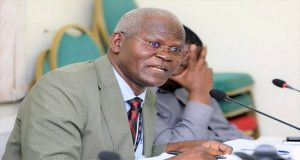
By Herbert Ssempogo
Whereas Uganda’s oil and gas projects are well intentioned, skeptics argue otherwise! Over the months, attacks largely online, have surged focusing on the East African Crude Oil Pipeline (EACOP).
Yet, the Upstream (Tilenga and Kingfisher) and the midstream-EACOP projects are conjoined. Each of them is vital for the other’s success. An attack on one is an attack on Uganda’s progress! Activists, largely foreign based and backed, are predicting doom and gloom: the projects are not good commercially and environmentally. We say the opposite.
On the commercial side, close to US$20bn is going to be injected in the projects. This is almost half of Uganda’s GDP in 2021, according to the UBOS statistical abstract for 2021/22. The investment will have a ripple effect-employment and contracts for Ugandans plus stimulating other sectors, which will provide goods and services. Using the prevailing crude oil prices, the government would earn close to $70bn over the projects’ lifetime.
Regarding EACOP, it is estimated that Uganda will realize between US$350 and US$400 million from the 15% equity shareholding. Production Sharing Agreements (PSAs) between the Government and international oil companies guide the sharing of proceeds from the crude oil. However, revenue from EACOP is linked to the total Upstream projects revenue because the pipeline is an enabler. It will also create employment, contracts for goods and services and generate tax for both Governments (Uganda and Tanzania).
The refinery will process 60,000 barrels of crude oil per day into refined products including liquefied petroleum gas, a clean source of energy. Plus, it will improve Uganda’s balance of payments by reducing the import bill of petroleum products currently costing $2bn annually.
All the proceeds are to be deposited in the Petroleum Fund and the funds will only be used to invest for future generations and support infrastructure development.
The worry, therefore, that the proceeds would not benefit Uganda, is not justified. Moreover, Uganda is a member of the Extractives Industries Transparency Initiative, requiring openness and accountability vis-a-vis the sub-sector activities. This is in addition to various institutions, which will act as checks and balances for both players (companies) and officials.
Employment of Ugandans is another major concern-pessimists argue that Ugandans will not be hired. The National Content Regulations (Midstream & Upstream) 2016 require the hiring of competent, qualified Ugandans. Indeed, several Ugandans are employed including at senior levels. For example, the EACOP Ltd. Deputy General Manager is John Bosco Habumugisha while the TotalEnergies EP Uganda Deputy Managing Director is Mariam Nampeera Mbowa. A total of 5,106 Ugandans are employed by international oil companies (IOCs), their contractors and sub-contractors. This is out of 5,372 employees in the sub-sector.
Ugandans, who have fully registered and have compliant companies, can and are getting contracts across the 16 sectors “ring-fenced” for Ugandans. According to the Petroleum Authority of Uganda (PAU), the regulator, contracts worth $10.7m were awarded to local companies in 2020. In 2021, they rose to $200m. Shortly before and after the Final Investment Decision, says PAU, Ugandan companies got contracts worth over $600m (about sh2.3 trillion) for the Tilenga and Kingfisher projects. Since 2017, 460 Ugandan companies have got contracts from IOCs. This, like the direct employment, has a positive ripple effect. The intensification in activities, will have a matching rise in contracts subject to compliance.
Additionally, a deliberate thorough framework with elaborate mandates-licensing, regulation and ensuring the State’s commercial interests-for each institution, will ensure efficiency. Elsewhere the absence of this specialization, is what in part, has curtailed optimal exploitation of the oil and gas resources.
This, Ugandans ought to recognize, is a once-in-a-lifetime opportunity. It is imperative, therefore, to prepare at a personal level through acquiring capabilities and skills and formalizing companies to ensure eligibility. More importantly, we should support the ongoing effort. Naysayers (citizens or otherwise) are in countries, which developed thanks to exploiting similar resources! Similarly, it is Uganda’s “right” to exploit the resources for economic and infrastructural growth and improvement of people’s livelihood.
The writer is a Senior Corporate Affairs Officer at the Uganda National Oil Company.
Credit: UNOC website.






